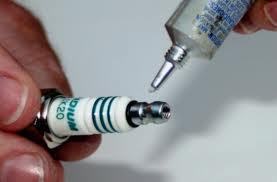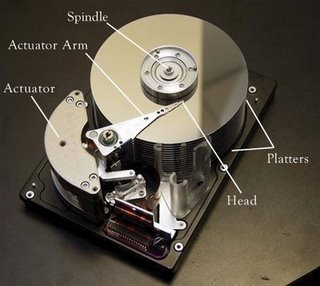Dielectric grease is a translucent substance used to seal electrical conductors in order to prevent dirt, dust, sand, and other foreign materials from sticking to the conductor and preventing it from transferring a current between the two contact points. Dielectric grease also blocks moisture, thereby preventing corrosion.
How Dielectric Grease Works
Dielectric grease is a translucent substance. Therefore, some light passes through it and causes distortion. Dielectric grease is usually gray in appearance and a 0.33 ounce bottle sells for $5. Dielectric grease insulates, lubricates, and protects hardware from foreign materials and natural elements.
Applications
Dielectric grease can be used in a number of applications and is most widely used in spark plug construction in order to allow the plug to slide into its ceramic container and prevent foreign objects from compromising the plug’s electric current. Generally, dielectric grease is used in any situation where electrical components such as cables, processors, or terminals come in contact with moisture.
Advantages
Dielectric grease is quite advantageous when used correctly. It is usually applied to non-metal computer chip parts, such as rubber and plastic casings, although it has the potential to provide a seal when applied directly to metallic surfaces as well. Dielectric grease can withstand extremely high temperatures and often maintains its sealing properties up to 500 degrees Fahrenheit. Because dielectric grease is non-conductive, it is an ideal material to be used on rubber and plastic casings that hold computer chips and other microprocessors, as they reduce the possibility of fire and other catastrophes.
Disadvantages
Although dielectric grease is advantageous if applied correctly, it can also be disadvantageous if applied incorrectly and may prevent a conductor from working at all. Dielectric grease is non-conductive, so if the user does not properly clean the conductor’s contact points after applying dielectric grease, current will not pass through them. Dielectric grease also has the potential to melt silicone rubber after several years so they should not be used with conductors that are encased in this type of material.



Roy
Silicone dielectric grease is NOT an insulator. Do some research.
Bill
Among the other incorrect information in this article, the worst is this:
“Dielectric grease is non-conductive, so if the user does not properly
clean the conductor’s contact points after applying dielectric grease,
current will not pass through them.”
This is incorrect. Push-on connectors displace the grease to a thin film (of a few microns) so that current WILL flow at the point of contact. THIS IS EXACTLY WHAT IT’S MADE TO DO.
Cleaning the grease off defeats the whole purpose of putting it on in the first place, which is to inhibit corrosion.